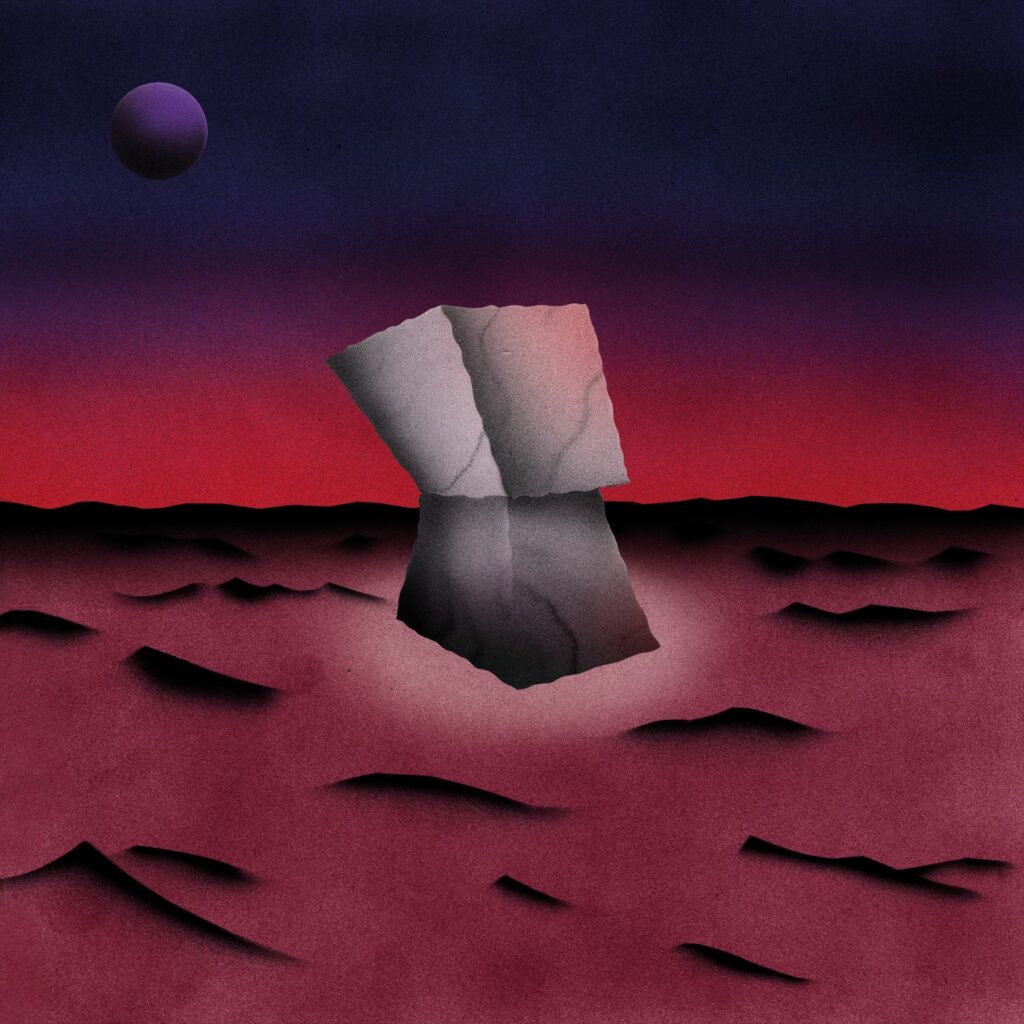A King Krule song tends to sound woozy, even slick, until you get close enough to smell the rot. Blue notes curdle in grimy pools of reverb. Hooks wilt in the muck. Then he sets loose that monstrous voice and it hulks through the swamp, holding each delicate line aloft like a swaddled newborn. It is the voice that protects the poetry, neither viable without the other. Each signals vulnerability and strength; each signals the pursuit of absolute authenticity. Since 2017’s The OOZ, Archy Marshall has cooled the fire in his lungs. But even his prettiest songs seem negotiated out of that old pact with rage.
Marshall is now 28, father to a four-year-old girl, and he wrote much of his fourth King Krule album in C major. But aside from naptime ballad “Seaforth,” Space Heavy subverts the key’s easy charms. His chords are arpeggiated as if by torture, drawn and quartered across wide, yawning bars. Any melodious pleasantries occur in spite of Marshall and Dilip Harris’ production—the clogged frequencies and sonic glop that make Krule’s dwellings so oppressively dank. The contradictory feeling of claustrophobia in vast spaces evokes the sound worlds of Arthur Russell and, lately, Mica Levi and Tirzah—expressionistically abstracted, gorgeously inhospitable. Even Space Heavy’s alt-rock songs sound twinned in spirit with Levi’s recent LPs, stirring the sonics of grime and dub into some listless form of ambient grunge.
Marshall seems pretty sad, as usual, and that seems to make him angry, as usual. But not angry like he was—perennially thwarted by the social system or romantically pummeled by whatever woman. “Flimsier” spins a gorgeous, creaking lament for a disintegrating relationship; “Hamburgerphobia” comically frames a lover’s jibes as “harsh” but “valid.” “From the Swamp,” a sunnier postcard from domesticity, describes a nagging temptation, a nostalgic throb, that he finally resists. “If it’s from the swamp,” he murmurs, flirting with the anthemic, “Then back it goes.”
As his melancholia comes up against the demands and rewards of fatherhood, Marshall experiences love in “a fugue state,” feeling himself “separate into the minutest minuscule gaps of time and space,” as he grumbles on “Hamburgerphobia.” His existential displacement manifests in a preoccupation with space: He sings of vacuums, pauses, in-betweens; empty heads, chests, and stomachs; the incomprehensible gap between one consciousness and another; the way parental love can close it.
The fixation on transitory states reflects Marshall’s long-held antipathy for rock and pop form, his shift from the primacy of hooks to vaporous transitions and antic ad-libs. On Space Heavy, his most straightforward, live-sounding production since 6 Feet Beneath the Moon yields mixed results. The barren feel suits uproarious highlight “Pink Shell,” with its James Chance-via-Big Black jitters, and Ignacio Salvadores’ sax contortions on the otherwise dreary “That Is My Life, That Is Yours.” By contrast, “If Only It Was Warmth,” a fierce plaint in live recordings, sounds pallid and defanged, though the similarly economical “Wednesday Overcast” gleams, closing the album with conspicuous neatness: “My head was empty/My life was discreet/A lot has changed/Now a lot means to me.”
What is haunting, and Krule-ian, about those lines’ delivery is their palpable anhedonia—he sounds, for all his resolute purpose, as fatalistic as ever. His supposedly fulfilled narrators are granted a fate little better than nihilism. Their burly melancholy emanates from a dysfunctional masculinity that muddles ego and love and self-loathing, that stokes paranoia and distorts beauty, but that can express vulnerability because it needs, above all, to not be fake. One interpretation of Space Heavy’s limited scope is that Marshall, knowing all this, has grown wary of masterpiece thinking and the macho ideal of tortured genius. His songs have always felt close to home, charcoal-smeared with London dusk and the nocturnal cadence of London jazz. On Space Heavy, for the first time, the great London singer-songwriter’s ambitions feel accordingly local, too.
All products featured on Pitchfork are independently selected by our editors. However, when you buy something through our retail links, we may earn an affiliate commission.

